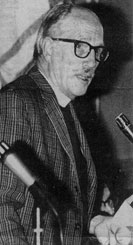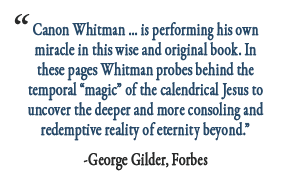Author Obituary
The Reverend Canon Robert Shaw Sturgis Whitman died on February 9th in Branford, CT at the age of 94.
Born July 27, 1915 he spent his formative years in Manhattan, his family residing in Murray Hill. He was a proud decendent of Col. Royal Emerson Whitman and Robert Gould Shaw. Both his grandfather, Dr. Royal Whitman, and his father Dr. Armitage Whitman were accomplished orthopedic surgeons. The former a pioneering inventor of correctional orthopedic devices and author of one of the first textbooks on the subject of correctional orthopedics.

Like his father, Whitman went on to study at Harvard University. His stay, however, was short-lived. In what was at the time a humiliating turn, he was kicked out after his first semester for failing an advanced level history course. Disgraced and ashamed, he returned to New York and took humble posts working as a messenger boy for a carpet company and a Wall Street bank.
It was at a party in New York that Whitman met Frances Perkins, then secretary of labor. Despite their difference in age, the two became friends and Perkins got him a job in D.C., at the Department of Labor. Though again, it was a small post as a messenger boy.
The two stayed in contact while he was in the Capitol and it was after Whitman revealed his interest in the ministry to Perkins that she encouraged him to follow his heart and attend seminary. Whitman did, going on to graduate from Yale's Berkeley Divinity School in New Haven, CT. Reflecting back on his life's work as a Minister many years later he said, "I guess when I think about it, I've been a messenger boy my entire life!"
He was ordained by Bishop Lawrence in 1944. From 1946-1949 he served as a chaplain to the U.S. Army in the Philippines before taking a position as Associate Rector of Bruton Parish Church in Williamsburg, Virginia, where he also served as chaplain to Episcopal students at the College of William and Mary. Prior to this he also served as Vicar of Grace Church, Yorktown.
The Massachusetts Berkshires served as the backdrop for Whitman's substantive ministry. He served as Rector of Trinity Episcopal Church, Lenox, MA, for thirty-one years, retiring on July 27, 1981.
In his book "The Goodness That Doth Crown Our Days" author John Allen Gables wrote of Whitman: " ... During his long tenure as Rector of Trinity Parish Canon Whitman revitalized St. Helena' s Chapel in New Lenox, started the annual Parish fair and other new programs, carried on an important ministry to school students and the aged, made significant improvments to the interior of Trinity Church, led the ecumenical movement in Lenox, served the diocese of Western Massachusetts in various offices, helped other Episcopal Churches in the Berkshires, and became an inportant and beloved part of the lives of his parishioners and the commuity of Lenox."
During those years he worked as rural Dean of the convocation of Episcopal churches in Berkshire County (1961-1971) . In 1978 He was named as an Honorary Canon of Christ Church Cathedral in Springfield, MA. He served as a chairman on the Historical Commission and as a member of the Lenox Kiwanis Club, the Southern Berkshire Deanery and the Diocesan Council. He Taught at the former Foxhollow school and was honorary Chaplain of the Berkshire school in Sheffield MA. He held weekly services at Meadow Place on Main Street and Edgecomb Nursing Home on Sunset Avenue in Lenox.
Beyond the ministry, Whitman loved the outdoors and all of GOD's natural wonders. He was particularly fond of fly-fishing and small boat sailing. He was a member of the Stockbridge Boat Club, The Lenox Club, The Small Point Club and The Oquossoc Angling Association, in Maine, where he served as secretary. He was also a member at The Graduate Club and The Order of Saint John.
A few years after his retirement he returned to serve as Rector of St. Martin's Church in Pittsfield, Mass. where he had served as Vicar prior to his time at Trinity.
Prior to his time at Seminary Whitman also studied at George Washington University in Washington, DC, the DuBose Memorial Church Training School in Monteagle, TN, and Saint Augustine's College in Canterbury Kent England.
He married the former Eleanor English of New Haven CT in 1944 and had two daughters, Rosemary and Sarah.
His wisdom and distinguished character will be missed but his love for life and learning will live on with his family. He left his book so that the ideas he felt so strongly about would live on.
Note on Usage
The capitalization of the word GOD was a purposeful stylistic preference of Reverend Whitman rooted in a tradition started by his forebear The Rev. William E. Armitage, D.D. of Wisconsin. His rationale for the choice to set this word apart from all others is explained in the introduction to his book, "Beyond Words" and this excerpt is reprinted below:
1. The Word GOD in this Book, and Beyond
"The language used when talking about GOD often belies the true nature of GOD. GOD is unlike anything else we know of. It is for this reason I have set this name in capital letters for the entire book, as a reminder that the way this word is defined is different from every other word on the page; to remind you that I use this word merely as a convention, but it means something other than the rest of the words. And it means something other than what you might take it to mean if I do not explain myself clearly. So, use the following explanation as a frame of reference and carry this understanding with you throughout this work as a means for you to look beyond the convention of the word GOD, and at what the word truly represents!
* * *
GOD is discussed in a very human-like way and, as a result, many of us often develop a very hu-man-like conception of GOD. Even if we don't intend to, sometimes it becomes difficult for our minds to not reflect our own nature on our understanding of the na-ture of GOD. It almost seems a part of our nature to want to maintain a false idea of GOD. This is what we must be aware of, and work to overcome.
You see, when I was a boy I would ask the same questions many young boys and girls ask at a certain age: What's out there? What's beyond that star? Or that star? And what's beyond that? I never found an answer. What I learned, however, is that there are some things I will never understand, that humans cannot un-derstand. There are some things that exist beyond our grasp, beyond our explanation--beyond words.
Infinity is one of these things. Sure, we under-stand the idea in the abstract; that something goes on forever and ever, but we will never be able to see it. As finite creatures, we will never wrap our minds around the infinite or eternal.
The same thing applies when we talk about what we mean by GOD. We will never be able to wrap our minds around GOD, or understand GOD com-pletely in any satisfactory way. Infinity and eternity are only parts of GOD. But just as we can understand the concept of infinity in the abstract, so too can we main-tain an understanding of GOD in the abstract. When reading this book, I urge you think about this word, GOD, as meaning ultimate reality, or ultimate truth. I propose that when we understand GOD like this, much more begins to make sense. GOD now exists in every-thing and everyone. GOD is within us and beyond us, beside us and among us all.
The word GOD has no satisfactory definition because the ultimate nature of the thing it describes is beyond our understanding. Still, there is a better way. We can reach a better understanding. I believe we can know GOD through our own experience. In the follow-ing chapters, I would like to share my beliefs with you in an effort to help you look beyond words towards the one Truth, GOD, as He is revealed in the Bible, through Jesus and in our lives. So, stay tuned! I hope it proves to be an edifying ride."




